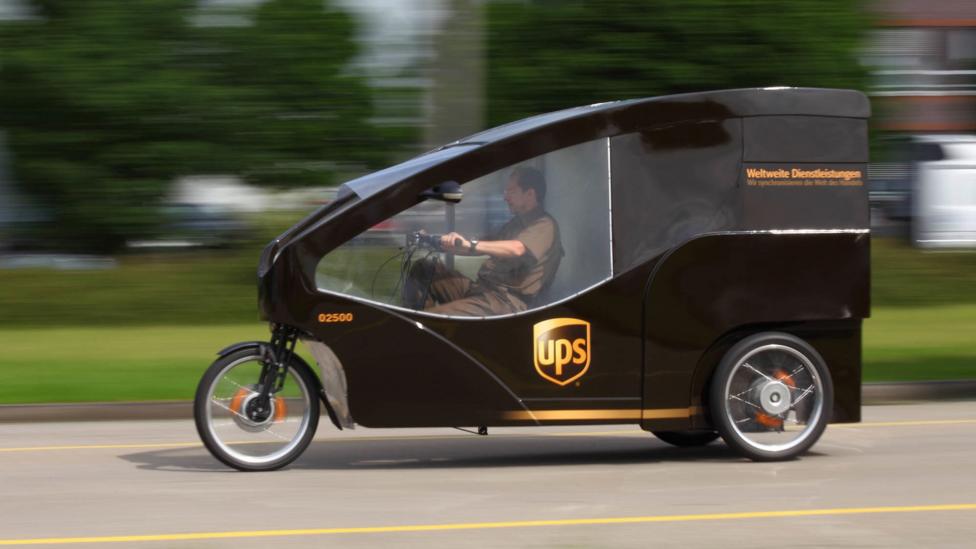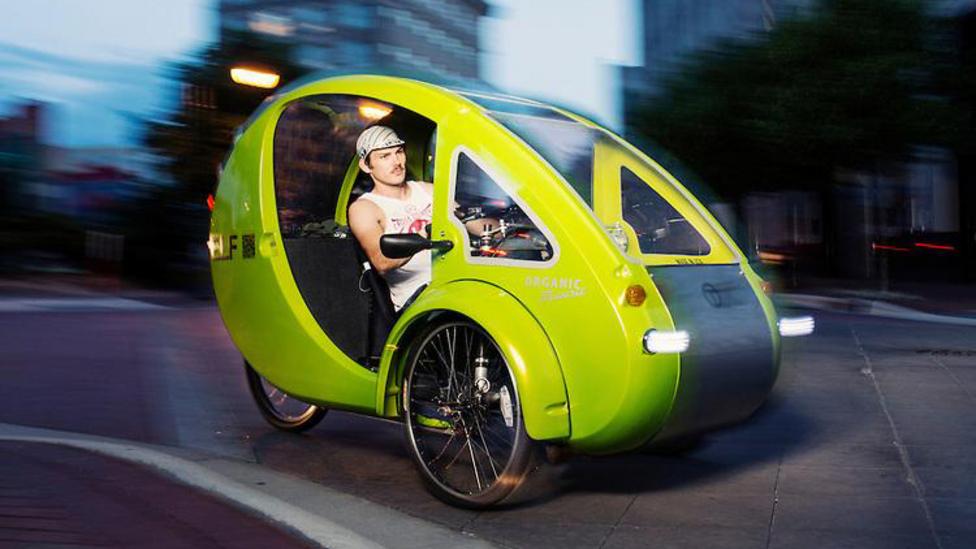Cargo bikes, built for the short haul (BBC)
Ken Wysocky
In Portland, Oregon, entrepreneur Franklin Jones has embraced the future of urban transport. Never mind that the future closely resembles early 20th-Century Britain.
Jones, the owner of B-Line Sustainable Urban Delivery, uses the same technology relied on by postal carriers in Victorian England, or by Good Humor ice cream vendors in postwar America. Like so many fashion trends, the decidedly low-tech cargo bike – known to early 1900s peddlers and tradesmen as the “poor man’s nag” – is making an everything-old-is-new-again comeback. From Portland, Seattle and Vancouver to Toronto, Boston and New York and points in between, urban businesses and residents are discovering what European and Asian city-dwellers have known for years: cargo bikes make sense, whether used to deliver goods through traffic-choked streets, lug kids to a park or buy groceries. Point of fact: 25% of families with two or more children in Copenhagen, Denmark, own a cargo bike, according to the European Cycle Logistics Federation (ECLF).
And why not? With its low initial cost of investment, zero carbon emissions, relative nimbleness and minimal operating costs, there is much to commend. Even DHL, the global parcel-delivery giant, recently hopped aboard. By replacing 33 trucks with 33 cargo bikes in the Netherlands, the company estimates it is saving about $575,000 annually and reducing carbon-dioxide emissions by 152 metric tonnes annually, the ECLF notes. Not to be outdone, rival UPS has begun testing its own electric-assisted delivery bikes – in brown, of course – in a few European cities.
“Cargo bikes also offer a huge advantage because we don’t need loading zones or parking spots, so we spend less time per delivery than if we used traditional delivery methods,” says Jones, who notes that his company has been transporting everything from food to business supplies to its Portland-area clients. “Using bikes also reduces traffic congestion and involves fewer risks than using trucks, not to mention the health and wellness aspects,” he adds.

***
more: http://www.bbc.com/autos/story/20140815-rise-of-the-short-haul-truckers

